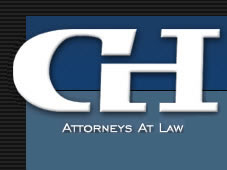California law requires that contractors obtain the proper license before work can be performed on any project. (See Business & Professions Code § 7026.) Moreover, where a contractor files a lawsuit to recover monies owed for work performed, that contractor must plead and prove it was licensed at all times that the work was performed. (See Business & Professions Code § 7031.) The penalty for failure to maintain your license is severe. If you are unable to prove that you were licensed at all times, you are barred from recovering monies on any grounds, whether it be for breach of contract, fraud, or reasonable value of the services performed. (See Hydrotech Systems, Ltd. v. Oasis Waterpark (1991) 52 Cal.3d. 988.) But what happens if a contractor is licensed for most of the time that the work is performed and inadvertently allows his license to lapse for a period during the construction of a project? This article will discuss this issue.
Generally, licenses can lapse for various reasons including: (1) The contractor enters into a contract prior to the time the license is issued due to delay in the licensing process; (2) the license lapsed because the contractor failed to properly renew it; (3) the contractor believed that he had the proper license when in fact the license was improperly issued; and (4) the license is suspended by the Contractors State License Board. Regardless of the reason that the license is not in effect, the penalty is the same, namely, the contractor cannot recover.
There is an exception if a contractor can show that it substantially complied with the licensing laws. This requires a factual showing that (1) the license was in effect both prior to and after the suspension; (2) the contractor promptly took action to be sure that it was properly licensed; and (3) the license lapsed as a result of excusable neglect or mistake. (See Business & Professions Code § 7031(b).)
Though it is possible to show excusable neglect under the right circumstances, it is doubtful that excusable neglect will be found where the license is suspended by the CSLB as a result of the failure to pay a judgment. In fact, in at least one case we handled, the court found that there was no substantial compliance where the license lapsed for six weeks during a project that lasted nearly one year. In that case, in its license renewal package, the contractor had notified the CSLB that one of the responsible managing officers ("RMO") wished to be removed and a new RMO would be substituted instead. The withdrawing RMO failed to sign the license application at the time that the renewal form was timely submitted to the CSLB. The CSLB then returned the form to the contractor, who then promptly obtained the RMO's signature and returned it to the CSLB.
Unbeknownst to the contractor, the CSLB required a $25 late fee because, by the time the application was returned, it was a few days after the renewal deadline. The CSLB then notified the licensee that the $25 fee would be required, but did not inform the licensee that if the money was not promptly returned, the license would be or had already been suspended due to failure to complete the licensing process within the proper time. The licensee during this time was under-going chemotherapy and did not timely return the application, but did so within ten days after receipt of the letter from the CSLB requesting the additional funds. By this time, six weeks had elapsed from the renewal date to the ultimate date that the funds were received by the CSLB. During this intervening six weeks, the license was suspended, but the CSLB never notified the licensee that the license had been suspended.
We therefore filed suit on behalf of the licensee, and the owner/developer obtained a certified report of license status which showed the suspension in one portion of the report. The other portion showed that the license was in effect at all times. Based on that report, the owner/developer filed a motion to dismiss the claim on the grounds that the licensee was not licensed at all times. In light of the facts, we were able to prove the licensee had taken appropriate steps to maintain its license, had never been notified by the CSLB that its license was suspended, and further, that it was licensed before and after the project.
We argued substantial compliance. The court, however, rejected the argument in favor of the owner/developer. The client was therefore precluded from suing for its monies, but was entitled to use its claim as an offset to any monies that the owner/developer was suing for in its claim against the contractor.
In a separate and more recent incident, our client, a corporation, sued to recover monies for work on a project. Prior to its incorporation, one of our client's principals had done work as a sole proprietor using a fictitious business name. When the sole proprietor incorporated, the attorney advising the licensee failed to inform him that the license needed to be transferred from the individual to the corporation. The corporation nevertheless started to enter into contracts and performed work, and on virtually every contract it was paid. In one instance, however, it was not paid and thus filed suit. The suit was filed in the name of the corporation, which had also served a stop notice. Unbeknownst to the corporation, the license had not been transferred at the time the work was performed or at the time the stop notice was served. Rather, the license remained in the name of the sole proprietor, who was one of the principals of the corporation. Though the lawsuit could have been filed in the name of the sole proprietor, it was not. As a result, the general contractor realized that our client was not properly licensed and filed a challenge to the complaint. Despite our best efforts to plead around the license infirmities, the court held the lawsuit was originally filed in the name of corporation, and because the corporation had served the stop notice, and more importantly, because the corporation was not licensed at the time the work was performed, the lawsuit was dismissed. To add insult to injury, our client was required to pay a portion of the general contractor's attorneys' fees, as attorneys' fees were available in the case. Though we were able to negotiate a reduction in the amount of fees, the problem could have been prevented by the proper transfer of the license to the corporation when the corporation was originally formed.
These cases are only two of many that occur in the courts every year. Contractors do not fully appreciate the need to timely turn in their license application and timely renew their licenses. Similarly, they fail to appreciate the fact the CSLB will suspend a license where licensees fail to pay money judgments against them. The moral of these stories is simple: Calendar the date that your license needs to be renewed. Make sure that your renewal application is properly completed and timely returned with all the funds necessary to satisfy the renewal process. When a contractor changes its business form from a sole proprietor or partnership to a corporation, make sure that the license is properly transferred prior to the time the corporation begins to enter into contracts. Similarly, where a new entity is being formed to provide construction services, make sure the entity is properly licensed before beginning work. Remember, all that stands between you and being paid could be the status of your license.
Darryl Horowitt, Esq., has conducted all phases of litigation in the areas of Banking, Business Disputes, Securities Fraud (class action and individual), Construction, Real Estate, Environmental, Casualty Insurance Defense, Personal Injury and Commercial Collections, from initial client contact to settlement, mediation, arbitration and trial - court and jury (State and Federal Court) and administrative proceedings (before the United States Environmental Protection Agency, Department of Agriculture, National Labor Relations Board, California Department of Fair Housing and Employment, Worker's Compensation Appeals Board and Agricultural Labor Relations Board).
©Copyright - All Rights Reserved
DO NOT REPRODUCE WITHOUT WRITTEN PERMISSION BY AUTHOR.










